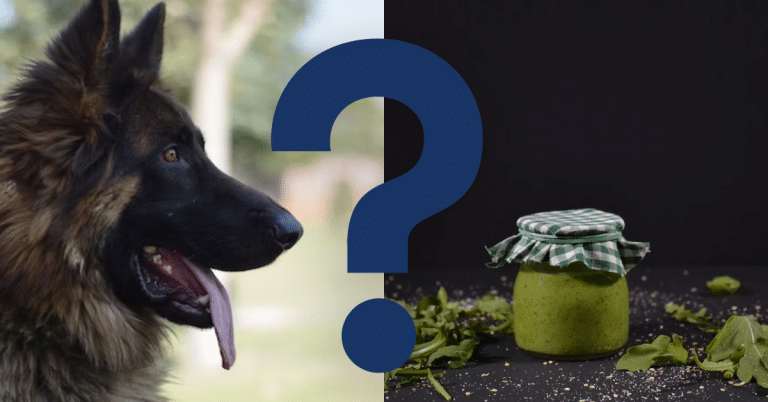Can Dogs Eat Fig Newtons? A Vet’s Opinion

Fig newtons are a well-liked cookie-like snack with a soft cookie crust and a fig paste interior. But can you feed fig newtons to your dog?
Giving fig newtons to dogs is not advised. Fig Newtons contain chemicals, including sugar, preservatives, and wheat flour, that are not a natural part of a dog’s diet and could cause digestive discomfort or severe health issues, even if the odd little piece might not hurt most dogs. The best action is to stick to dog-safe goodies and seek advice from a veterinarian on appropriate human meals for dogs.
Benefits of fig newtons for dogs
Although fig newtons are generally not advised as a treat for dogs, the figs used in them may provide a few minor advantages. Dietary fiber, vitamins (A, B6, and K), and minerals (including potassium and magnesium) can all be found in figs. These nutrients help your dog’s immune system, digestion, and general health. However, these advantages can be gained without the additional sugars and preservatives in fig newtons from safer and more suitable sources, including fresh fruits and vegetables that are especially advised for dogs. Always check with your veterinarian before adding new food to your dog’s diet.

How to safely give fig newtons to dogs
While fig newtons are not regarded as an ideal treat for dogs due to the added sugars, preservatives, and other potentially hazardous substances, they can be given as a treat on occasion. Here are some guidelines for giving fig newtons to dogs safely:
Check for Allergies
Before giving your dog fig Newton, ensure they aren’t allergic to any ingredients. Introduce and watch for adverse reactions like itching, rashes, or digestive distress.
Moderation is essential
Fig newtons should be administered in tiny, occasional doses. While figs have certain health benefits, the other ingredients in the cookies might be detrimental in excess.
Remove the Filling
Remove the fig paste filling from the cookie and serve only the essential cookie. The filling frequently contains extra sweets and unnatural additives that harm dogs.
Cut into small pieces.
If you offer your dog a fig newton, cut it into tiny, bite-sized pieces to eliminate choking dangers and make it easier for your dog to digest.
Avoid Xylitol and Other Harmful ingredients.
Ensure the fig newtons you give your dog don’t contain xylitol, chocolate, raisins, or other harmful chemicals that can be fatal to dogs.
Monitor for adverse reactions.
After giving your dog a small slice of a fig newton, watch for any signs of digestive problems, such as vomiting or diarrhea. If any problems emerge, avoid serving fig newtons in the future.
Choose fresh figs
Rather than fig newtons, consider presenting fresh, ripe figs as an occasional treat. Remove the peel and seeds before feeding your dog, and keep the portion size small.
Consult Your Veterinarian
It is critical to consult your veterinarian before introducing any new food into your dog’s diet, especially treats not expressly designed for dogs. They can give personalized recommendations based on your dog’s specific health needs.
While certain fig newtons may contain minimal nutrients that are good for dogs, they are not a replacement for a well-balanced and healthy canine diet. Stick to treats specifically intended for dogs, and utilize fresh fruits and vegetables that are known to be suitable for canine ingestion to safeguard your dog’s health and well-being.
Will fig newtons make a dog sick?
Fig newtons have the potential to make a dog sick for a variety of reasons, including:
- High Sugar Content: Fig newtons include added sugars, which are toxic to dogs and can cause vomiting and diarrhea.
- Preservatives And Artificial Additives: The preservatives and artificial additives in fig newtons can be toxic to dogs and cause stomach problems.
- High-Calorie Content: Fig Newtons are high in calories, and providing them to dogs in excess can contribute to weight gain and obesity, leading to various health issues.
- Potential Allergens: Some elements in fig newtons, such as wheat or specific food colors, may cause allergic responses in dogs.
- Choking Hazard: If not carefully sliced into little pieces, the sticky texture of fig newtons may provide a choking hazard to dogs, especially tiny breeds.
- Pancreatitis Risk: The high-fat content of fig newtons can raise the risk of pancreatitis in dogs, which is an unpleasant and potentially fatal illness.
- Toxic Components: Some fig newton variants may contain toxic components such as xylitol, raisins, or chocolate, which can be fatal to dogs.
- Digestive Sensitivity: Dogs’ digestive processes differ from humans’, and eating items like fig newtons that are not part of their natural diet might cause gastrointestinal irritation.
To avoid potential health risks, avoid feeding fig newtons to dogs and, instead, go for treats designed exclusively for dog consumption. If your dog has eaten fig newtons or other human food in large quantities, contact your veterinarian immediately for expert guidance and care.
Can Dogs Eat Fig Newtons Variations?
Giving dogs fig newtons or any variations of them is typically not suggested. While some varieties may have different flavors or ingredients, they always contain sweets, preservatives, and other toxic substances to dogs.
Variations of fig newtons may contain various fillings or coatings, but the essential components are usually the same. Dogs’ dietary needs and sensitivities differ from those of people, and many human foods, such as fig newtons, are not designed with their health in mind.
Feeding fig newtons or variations to dogs can result in digestion difficulties, weight gain, and exposure to potentially toxic components such as xylitol, raisins, or chocolate. Furthermore, the high sugar content of these snacks may contribute to dental issues in dogs.
Avoid giving him fig newtons or other human goodies to keep your dog safe and healthy. Stick to dog-specific treats, and if you need more clarification on the safety of a particular meal for your dog, ask your veterinarian.

Vet’s Summary
Fig newtons are not advised for dogs due to their components, which include added sugars, preservatives, and probable allergies. While figs may have some health benefits for dogs, the cookie-like treat contains ingredients that might be hazardous to canine health if ingested on a frequent or significant scale. Potential hazards include stomach distress, weight gain, and exposure to harmful substances. As a result, it is best to avoid offering fig newtons or variations to dogs and instead choose treats designed exclusively for canine ingestion.
Probiotic Supplement Recommendation: Given the importance of maintaining a healthy digestive tract in dogs, owners should consider providing their dogs with probiotic supplements. Probiotics can help maintain healthy gut flora, ease digestion, and boost the immune system. However, it is critical to contact a veterinarian before administering any supplements. Depending on their specific needs, age, and health condition, they can offer the best probiotic supplement for the dog. Furthermore, the veterinarian can advise on the dose and monitor the dog’s response to verify that the probiotics are safe and beneficial. While probiotic supplements can be helpful, it is still critical for the dog’s general health and well-being to prioritize a well-balanced and adequate diet.
Videos to watch
If you are wondering if you can give your dog fig newtons, watch this:
And if you want to know what a dog can NOT eat, watch this:






